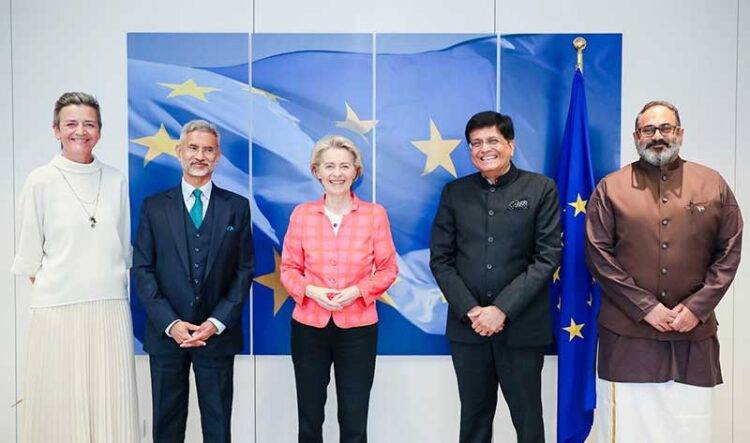The European Union’s (EU) foreign policy chief, Josep Borrell, called for action against Indian refined products from Russian crude, which was met with External Affairs Minister S Jaishankar’s advice to look at EU Council regulations.
In an interview with Financial Times, Borrell stated that while India’s buying of Russian oil was normal, he wanted the EU to act on refined products coming from India-made Russian crude, as Western nations move to tighten sanctions on Moscow’s energy sector.
The EU’s Sanction Policy on Indian Refined Products from Russian Crude
The EU is currently imposing economic sanctions on Russia due to its annexation of Crimea in 2014. The sanctions target specific areas of the Russian economy, including its energy sector.
In response to the EU’s sanctions, Russia has been looking for alternative markets for its oil and gas products. India is one such market that Russia has been actively pursuing.
India has been importing crude oil from Russia for several years, and in recent years, it has started importing Russian crude to refine and then export it to Europe. This has become a contentious issue, as the EU believes that this practice undermines its sanctions against Russia.
The EU believes that by importing Indian refined products from Russian crude, Europe indirectly imports Russian oil. Therefore, the EU has been looking to take action against Indian companies involved in this trade.
External Affairs Minister’s Response
In response to Borrell’s remarks, S Jaishankar advised him to look at the EU Council regulations. Jaishankar stated that Russian crude is substantially transformed in the third country and is not treated as Russian anymore. He urged Borrell to look at Council’s Regulation 833/2014.
This regulation provides for the blocking of funds and economic resources of certain persons, entities, and bodies that have been responsible for actions that undermine or threaten the territorial integrity, sovereignty, and independence of Ukraine.
Jaishankar’s response suggests that Indian refined products from Russian crude do not fall under the purview of the EU’s sanctions against Russia. This is because Russian crude is substantially transformed in India and is no longer considered Russian.
The Meeting Between Borrell and Jaishankar
Borrell met with S Jaishankar at the trade technology talks in Brussels, but he was not present at the press conference that followed. Instead, EU Executive Vice President on Competition, Margrethe Vestager, made a statement, stating that there was no doubt about the legal basis of the sanctions. She also mentioned that the EU and India would have the discussion as friends, with an extended hand and not a pointed finger.
Commerce Minister Piyush Goyal and Union Minister of State for Entrepreneurship, Skill Development, Electronics, and Technology Rajeev Chandrasekhar were also present at the meeting.
The Importance of the Sanction Policy
The EU’s sanction policy on Indian refined products from Russian crude is significant as it affects the trade relationship between India and the EU. It also highlights the complexity of international trade and the challenges that arise when countries try to enforce their own policies.
Moreover, the EU’s sanctions on Russia have already impacted the European economy. The sanctions have led to a decline in European imports of Russian oil and gas, and they have also affected European companies’ investments in Russia.
Conclusion
In conclusion, the EU’s sanction policy on Indian refined products from Russian crude is a contentious issue. While the EU believes that this trade undermines its sanctions against Russia, India argues that the trade does not fall under the EU’s purview. The meeting between Borrell and Jaishankar aimed to address these concerns, and further discussions are expected to take place between the EU and India. The outcome of these discussions will have implications for the trade relationship between the two entities.
Source: NDTV







